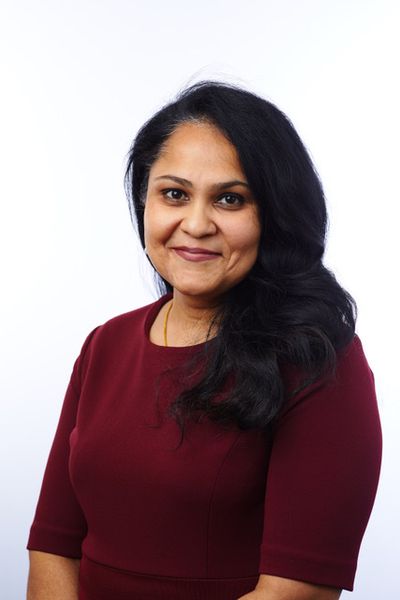
Swathi Kiran
Professor of Health and Rehabilitation Sciences
Swathi Kiran is the Founding Director of the Center for Brain Recovery (CBR), Director of the Aphasia Research Laboratory, and James and Cecilia Tse Ying Professor of the Neurorehabilitation Department of Speech Language and Hearing Sciences at Boston University. Dr. Kiran is also the Co-founder and Scientific Director of Constant Therapy Heath, an organization utilizing machine learning methods to develop individualized recovery plans for individuals with traumatic brain injury, aphasia, dementia, or other neurological conditions.
Dr. Kiran brings with her several years of experience since receiving her PhD in Speech Language Pathology from Northwestern in 2001 in the field of speech and language, neuroimaging, and brain recovery, that allow for an interdisciplinary approach to her research at the CBR. Her academic research focuses on neuroscience, brain plasticity, language recovery, and bilingualism, as she also oversees several projects by her graduate and undergraduate students at both CDS and CBR. These projects include Predicting Rehabilitation Outcomes in Bilingual Aphasia using Computational Modeling, Mapping Aphasia Recovery in the Brain, and Neuroimaging in the Everyday World (NEW).
At the CBR, Dr. Kiran and her team hold over 13 events drawing over 4,000 attendees and publish over 30 papers annually, bringing together more than 20 countries to engage in brain recovery research. As Co-chair for the annual NEW conference, Dr. Kiran works to bring together researchers working on emerging technologies and studies to understand the brain in the everyday world through wearable neuroimaging devices. She presents her findings during this two-day conference at Boston University alongside 13 other speakers in the field and over 30 poster presentations by students and affiliates.
Dr. Kiran plans to expand the interdisciplinary collaborative efforts at the CBR to develop advanced neuroimaging approaches to study the brain, sophisticated computational and AI models to predict brain function and continue to provide high-quality clinical care.